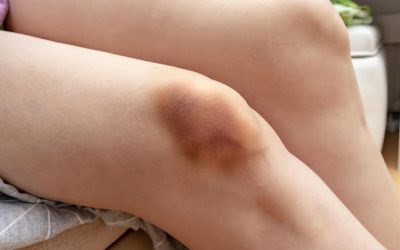Some people have a headache a few hours after drinking wine — especially red wine. But it’s different from a hangover, which may or may not include a headache. It’s possible that some chemicals in wine and how the body responds to them could result in a headache after drinking wine. More research is needed to find the exact cause of wine headache. A hangover is a group of unpleasant symptoms that can happen after drinking too much alcohol.
- Blood vessel dilation triggers sweating due to alcohol increasing the heart rate.
- Excessive sweating and face flushing may be an indication that your body doesn’t tolerate drinking.
- I don’t have to tell you what it’s like to have a hangover.
- But there are some things that can help you feel better after overindulging.
- Like alcohol, certain over-the-counter pain relievers, including aspirin and ibuprofen, can increase acid release and irritate the lining of the stomach.
Should You Exercise on a Hangover Kane Footwear

Alcohol alcohol rehab consumption disrupts your body’s natural recovery mechanisms. It interferes with liver function, nutrient absorption, and muscle repair, all of which are crucial for post-workout recovery. When you exercise while hungover, you’re placing additional stress on your body at a time when it’s already working overtime to process and eliminate alcohol. This added strain can have long-term consequences, particularly for vital organs like the liver, which plays a key role in detoxification.
Conclusion: Can a Sauna Really Help with Hangover Symptoms?
The fluctuations in blood sugar that accompany drinking can lead to negative moods, which might include anxiety and anger as well as mood instability. As you lose fluid through frequent urination, you’ll become increasingly dehydrated and extremely thirsty as a result, especially if you’re drinking in a hot environment that’s making you sweat, too. In the United States, drinking alcohol is largely embraced by mainstream culture, which may even promote behaviors involving excessive drinking. Your body needs time to recover, and pushing yourself too hard could strain your organs and delay healing.

Grab Your “FREE” Sauna E-book NOW!
While the idea of “sweating it out” may seem appealing—offering a chance to clear your mind, boost your mood, and regain some energy—it often comes with unintended consequences. From dehydration to poor performance sweating while hungover and even potential organ strain, working out with a hangover could leave you feeling worse than before. Experts generally recommend relaxation when you’re hungover.
- You should be paying close attention to any additional symptoms you experience during a hangover.
- In addition, the diuretic effects of alcohol make curing a hangover with a run even more difficult.
- 25 Gut Health Hacks is yours absolutely FREE when you sign up to receive health information from Harvard Medical School.
- If the goals of your running schedule are to improve your time, distance, or endurance you need to ask yourself whether running while hungover would progress or hinder those goals.
What is the fastest way to recover from a hangover?
Exercising and sweating can actually dehydrate you further. If you can hydrate enough to feel better, you may be able to work out later in the day, but don’t use exercise as a cure. While exercise isn’t a silver bullet for hangovers, it can provide relief through improved circulation, mood stabilization, and a general sense of accomplishment. The key is knowing your limits, hydrating adequately, and choosing movement that aligns with how your body feels.

Regular physical activity is what builds resilience, so the benefits of a hangover workout are likely more noticeable for those who are already active. Exercise is widely celebrated for its benefits, and for good reason—it improves circulation, stimulates the release of feel-good endorphins, and helps manage stress. On a hungover morning, engaging in low-intensity activities can enhance blood flow, which may assist in rehydrating tissues and promoting nutrient distribution. This gentle movement can also alleviate the mental fog caused by fatigue and stress, offering a clearer, more grounded sense of well-being. If you experience these symptoms along with regular night sweats, you may be going through alcohol withdrawal. However, a more serious cause of night sweats is alcohol consumption.
Dehydration
Excessive sweating and face flushing may be an indication that your body doesn’t tolerate drinking. People with alcohol intolerance may https://muaradigital.com/2021/12/01/how-to-fill-out-a-checking-deposit-slip-12-steps/ need to limit their alcohol consumption or avoid drinking altogether in order to prevent night sweats. Well, if you’re feeling sick exercise is probably not on the cards anyway, but Worthington confirms it’s a big no-no. ” His advice it to sit it out and ensure you eat lots of good quality dietary fats, such as fish oils, avocados and nuts, to help the liver metabolise alcohol.
